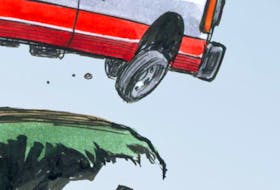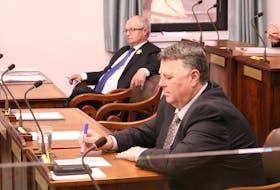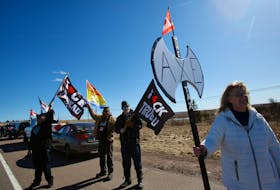I’ve never liked Remembrance Day. It is a commemoration full of lies and platitudes.

Every year, we hear politicians and “dignitaries” proclaim that First World War soldiers died “for our freedom.” Such statements are an obnoxious, ignorant insult to millions of dead young men who didn’t have a clue what they were getting into. Even if they did, the so-called Great War had absolutely nothing to do with defending democracy and everything to do with politics and power.
Even worse is the oft-repeated claim that Canadian soldiers’ victory at Vimy Ridge “forged a nation.”
It is a preposterous notion that young men dying in the mud, and killing other young men in the mud, could have anything to do with “forging a nation.”
In this narrative, military glory made Canada, and set it on course to become the country it is today. The very concept of military glory is immature and an outright lie — there are millions of dead to prove it.
After the lies are told, the platitudes come out. First among them is the “supreme sacrifice” that soldiers made willingly and selflessly.
A modern citizen with even the slimmest knowledge of the First World War knows this can’t possibly be true.
When the boys from Prairie farms and Newfoundland bays found themselves cold and wet in trenches for months at a time, they must have realized their romantic images of military glory and battlefield prowess were hopelessly wrong. They must have felt anger and a sense of betrayal, because of the vast difference between what they were told and what was their horrifying reality.
To deny this is to deny them their humanity. And yet, this is denied every Nov. 11.
An honest Remembrance Day would first and foremost declare the First World War to be a colossal mistake. It would, in a sense, offer an apology to the millions who essentially died for nothing.
Some people mistakenly think this is what is meant by the phrase “never again.” It isn’t. Have you ever heard a politician or military representative at a Remembrance Day ceremony say, “We’re sorry”? I haven’t, and I’ve been to quite a few, despite not liking them.
The phrase “never again” is just another meaningless platitude. Supposedly, it means that, as a society, we will strive for peace.
And yet, the main aspect of Remembrance Day ceremonies is that they are militaristic and champion the military ethos, with marching bands and uniforms and medals and the full regalia that must have so impressed young volunteers a century ago.
(For the best commentary ever written about the futility of Remembrance Day parades, go on YouTube and listen to Australian folksinger Eric Bogle sing “The Band Played Waltzing Matilda.”)
They must have felt anger and a sense of betrayal, because of the vast difference between what they were told and what was their horrifying reality.
Our family lore includes a strange episode in the life of my paternal grandfather, from Whitehaven, U.K.
Lieut. Watson Jones (b. 1890) served with the British Army during the First World War. He survived, but after the war ended in 1918, he didn’t come home for almost a year. Nobody knows where he was or what he did during that time. Maybe he was in a hospital, undocumented. Maybe he suffered shellshock or amnesia. Maybe he went on an extended drinking binge to try to forget what he had seen and experienced.
He came home sometime in 1919. Tales of long-lost soldiers finding their way home even years after a war ends are fairly common historically. But his story has added tragedy. He and his wife, Martha, had four young children, all of whom died in 1919 during the Spanish Flu epidemic.
Soon after, they moved to Canada and started another family. I was three when he died in 1962. Would he have wanted his Canadian son, grandsons or great-grandsons to go to his war? I’m certain he would say no.
Brian Jones is a desk editor at The Telegram. He can be reached at [email protected].

![['War graves outside of the church in Wales where the grave of James Gladstone Crummey is located.']](https://saltwire.imgix.net/tel-a01-05092017-wargrave3-vp.jpg?cs=srgb&fit=crop&h=568&w=847&dpr=1&auto=compress%2Cformat%2Cenhance)







